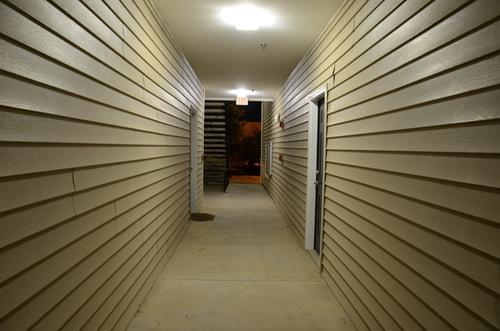State Supreme Court Rules on Dog Sniff Searches in Apartment Buildings
 In the realm of criminal law, the Fourth Amendment to the United States Constitution provides one of the most basic rights afforded to citizens of this country. The Fourth Amendment states that an individual’s right to security regarding his or her person, home, and belongings may not be violated by unreasonable searches and seizures. It further specifies that a warrant for a search by the government shall only be issued when probable cause exists and is supported by a sworn or affirmed statement.
In the realm of criminal law, the Fourth Amendment to the United States Constitution provides one of the most basic rights afforded to citizens of this country. The Fourth Amendment states that an individual’s right to security regarding his or her person, home, and belongings may not be violated by unreasonable searches and seizures. It further specifies that a warrant for a search by the government shall only be issued when probable cause exists and is supported by a sworn or affirmed statement.
While the rights guaranteed by the Fourth Amendment sound simple enough in theory, the definition of an unreasonable search or seizure has been consistently debated for nearly two and half centuries since the amendment’s ratification. Recently, the Connecticut Supreme Court added another chapter to the discussion as it issued its ruling on a case involving a drug-sniffing dog working in the hallway of an apartment complex.
Different Rights for Different Homes?
When you own—or even rent—a free-standing home, the demarcation between public and private property is fairly clear. Before entering a free-standing home to conduct a search, law enforcement officers must obtain establish probable cause and obtain a warrant. In 2013, the United States Supreme Court determined that the introduction of a drug-sniffing dog onto a person’s property constitutes such a search and, therefore, requires a warrant.
The high court’s ruling, however, failed to address the rights of those who live in multi-unit buildings—particularly complexes with shared hallways and interior spaces. Do apartment-dwellers and condominium owners enjoy the same Fourth Amendment protections as homeowners? The case before the Connecticut Supreme Court raised this exact question.
Connecticut v. Kono
The controversy stemmed from an incident that took place in 2012 in Berlin, Connecticut. Acting on an anonymous tip, Berlin police obtained permission from the developers and owners of a condominium complex to walk a drug-sniffing dog through the common areas and hallways of the complex. The residents of the complex were not notified nor did they grant consent. During the walk-through, the dog alerted his handlers to the presence of contraband by sitting at the door of a particular unit—the unit specified in the anonymous tip. Police then obtained a warrant to search the unit leading to the discovery of an indoor greenhouse for growing marijuana. The occupant of the unit was arrested and charged.
The defendant’s attorneys claimed that the dog’s presence at his door constituted a search according to the Fourth Amendment of the U.S. Constitution as well as Section 7 of the State Constitution. To an extent, the Supreme Court agreed, ruling that while the officers entered the premises legally, the intent of introducing the drug-sniffing dog was to conduct a de facto preliminary search of the interior of the condominium units. The Court determined that this type of search violated the rights guaranteed by the State Constitution. The ruling, however, did not explicitly address whether the actions of law enforcement in this case violated the Fourth Amendment.
Have Your Rights Been Violated?
If you have been arrested on charges resulting from a search that you believe was unreasonable or unlawful, you need help. Contact an experienced Connecticut criminal defense attorney for assistance. Call 860-290-8690 to schedule a free initial consultation at Woolf & Ross Law Firm, LLC today.
Sources:
http://www.jud.ct.gov/external/supapp/Cases/AROcr/CR324/324CR104.pdf
https://www.law.cornell.edu/constitution/fourth_amendment
https://www.supremecourt.gov/opinions/12pdf/11-564_5426.pdf






